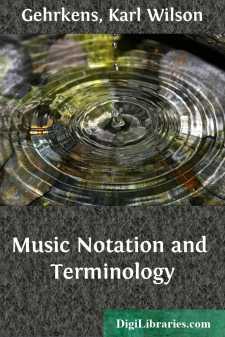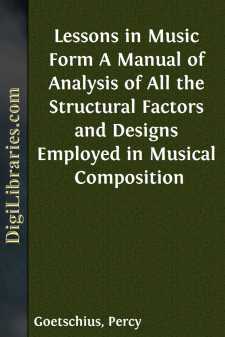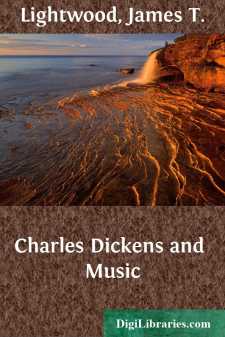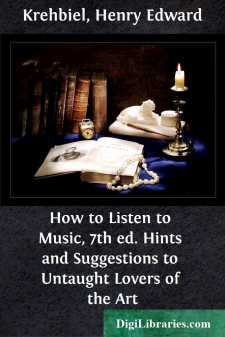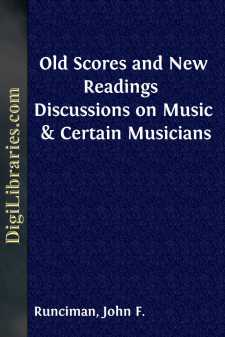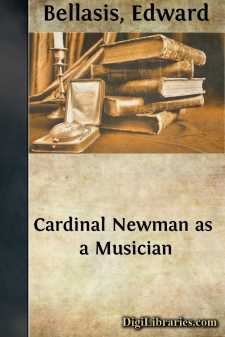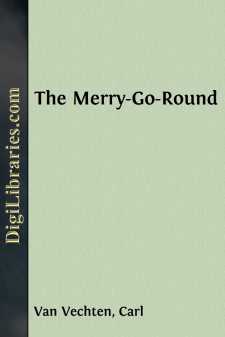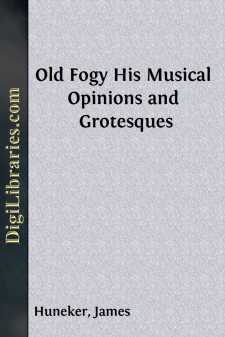Music
- General
- History & Criticism 9
- Instruction & Study 9
- Musical Instruments 1
- Recording & Reproduction 1
- Reference 1
- Songbooks 11
General Books
Sort by:
PREFACE The study of music notation and terminology by classes in conservatories and in music departments of colleges and normal schools is a comparative innovation, one reason for the non-existence of such courses in the past being the lack of a suitable text-book, in which might be found in related groups clear and accurate definitions of the really essential terms. But with the constantly increasing...
more...
by:
Percy Goetschius
CHAPTER I. INTRODUCTION. THE NECESSITY OF FORM IN MUSIC.—So much uncertainty and diversity of opinion exists among music lovers of every grade concerning the presence of Form in musical composition, and the necessity of its presence there, that a few general principles are submitted at the outset of our studies, as a guide to individual reflection and judgment on the subject. Certain apparently...
more...
CHAPTER I The attempts to instil the elements of music into Charles Dickens when he was a small boy do not appear to have been attended with success. Mr. Kitton tells us that he learnt the piano during his school days, but his master gave him up in despair. Mr. Bowden, an old schoolfellow of the novelist's when he was at Wellington House Academy, in Hampstead Road, says that music used to be...
more...
IntroductionThe book's appeal.This book has a purpose, which is as simple as it is plain; and an unpretentious scope. It does not aim to edify either the musical professor or the musical scholar. It comes into the presence of the musical student with all becoming modesty. Its business is with those who love music and present themselves for its gracious ministrations in Concert-Room and Opera...
more...
by:
John F. Runciman
Many years ago, in the essay which is set second in this collection, I wrote (speaking of the early English composers) that "at length the first great wave of music culminated in the works of Tallis and Byrde ... Byrde is infinitely greater than Tallis, and seems worthy indeed to stand beside Palestrina." Generally one modifies one's opinions as one grows older; very often it is necessary...
more...
by:
Edward Bellasis
It is a remark of St. Philip Neri's latest biographer that, "Our Saint was profoundly convinced that there is in music and in song a mysterious and a mighty power to stir the heart with high and noble emotion, and an especial fitness to raise it above sense to the love of heavenly things." In like manner the Saint's illustrious son, Cardinal Newman, has spoken of "the emotion...
more...
by:
Carl Van Vechten
In Defence of Bad Taste In America, where men are supposed to know nothing about matters of taste and where women have their dresses planned for them, the household decorator has become an important factor in domestic life. Out of an even hundred rich men how many can say that they have had anything to do with the selection or arrangement of the furnishings for their homes? In theatre programs these...
more...
by:
James Huneker
INTRODUCTION My friend the publisher has asked me to tell you what I know about Old Fogy, whose letters aroused much curiosity and comment when they appeared from time to time in the columns of The Etude. I confess I do this rather unwillingly. When I attempted to assemble my memories of the eccentric and irascible musician I found that, despite his enormous volubility and surface-frankness, the old...
more...


